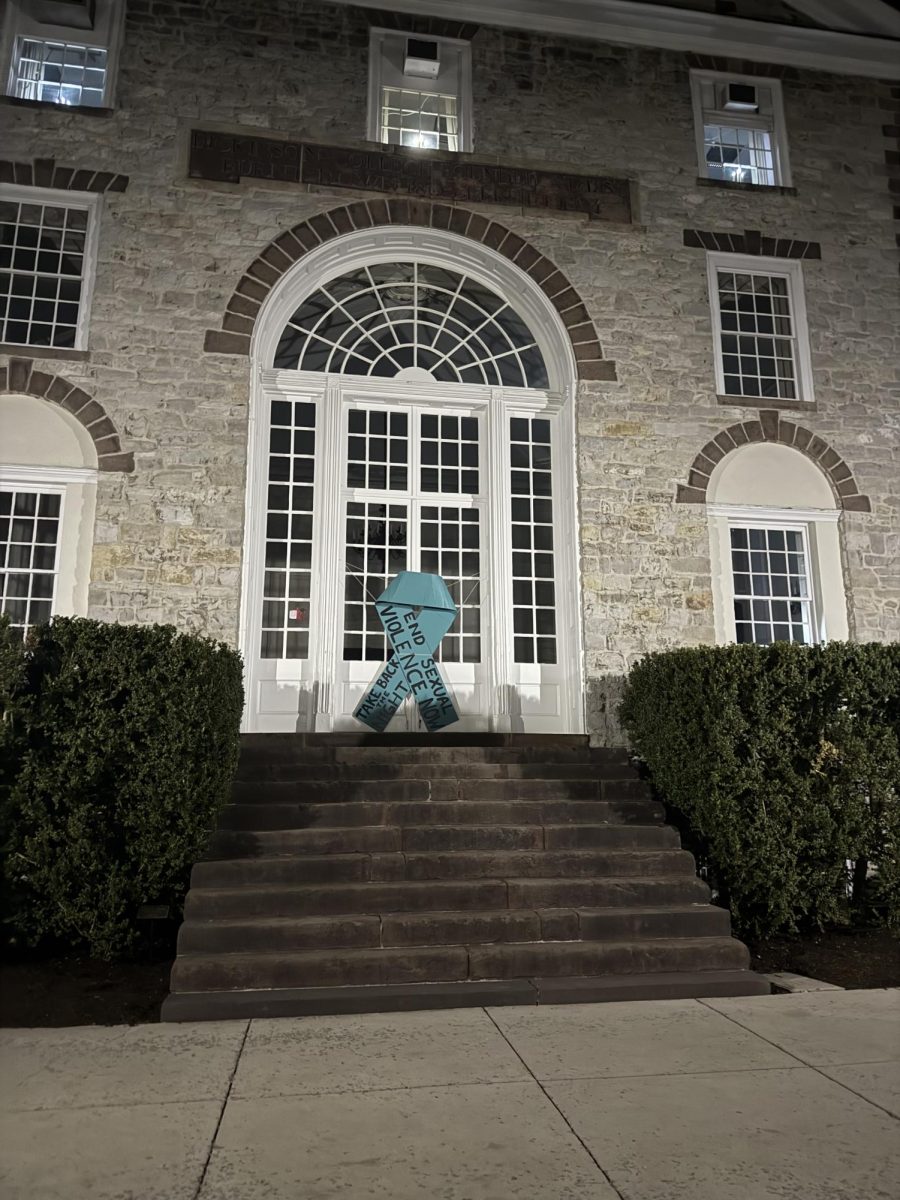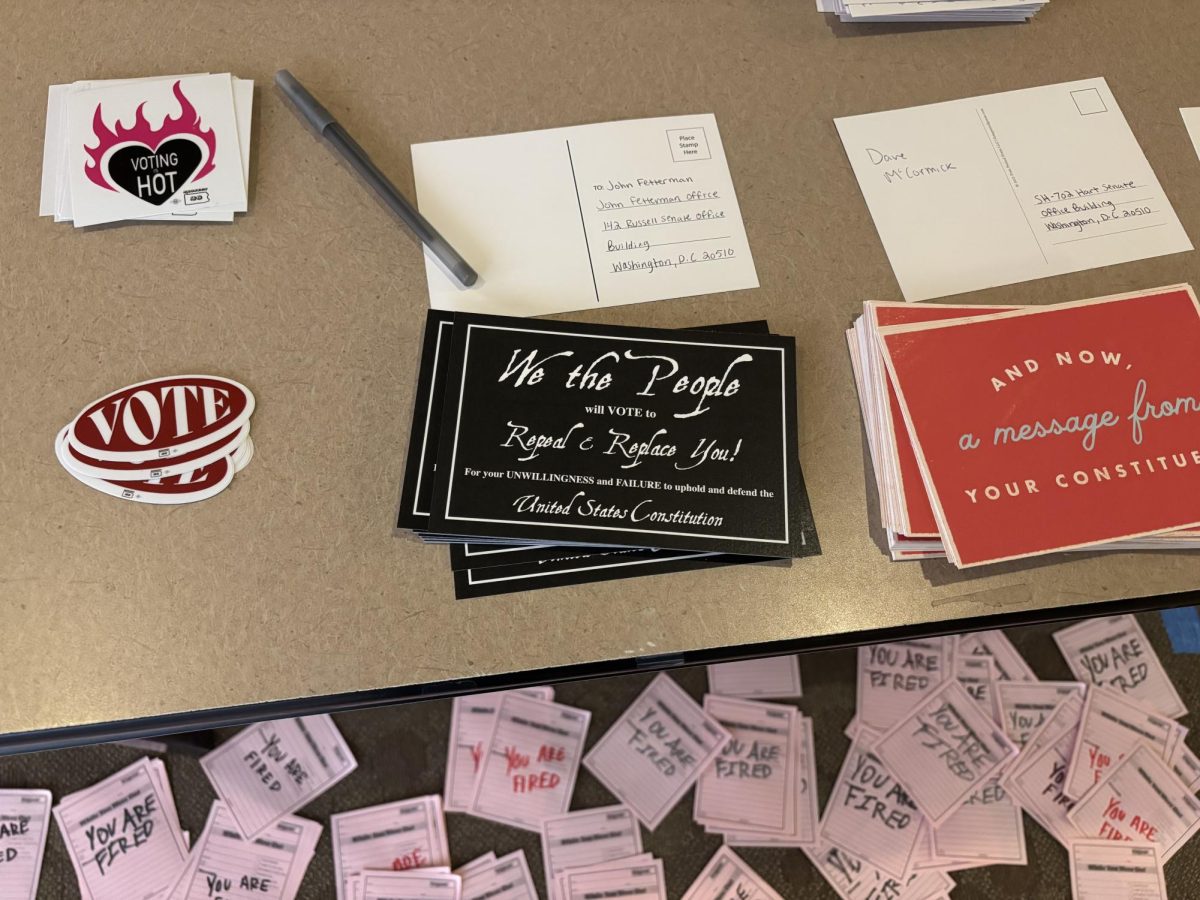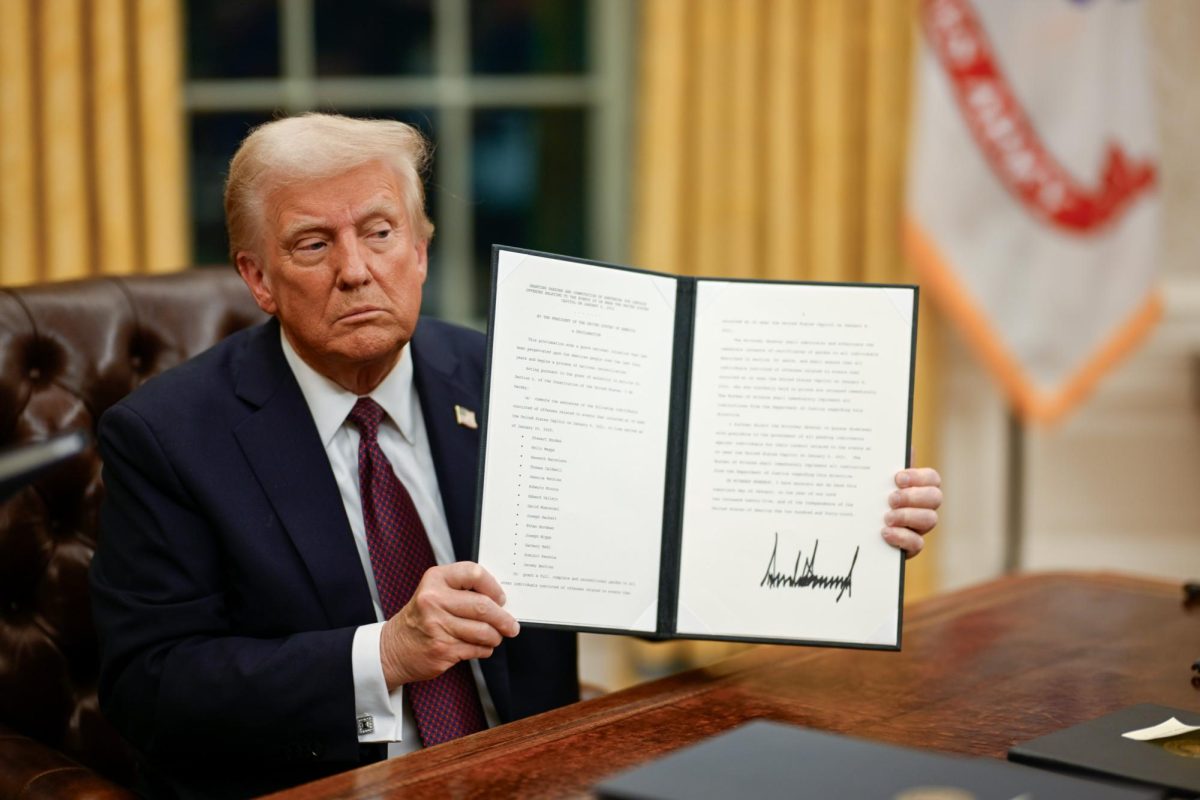After attending the 2023 Commencement ceremony, Rose-Walter Prize recipient Tara Houska returned to Dickinson on Oct. 4, to lead the 12th Annual Rose-Walter prize lecture at the Anita Tuvin Schlechter Auditorium (ATS). The lecture came during a two week residency on campus in partnership with the Center for Sustainability Education and the Center for the Futures of Native Peoples.
Houska began her lecture by introducing herself and her background, which includes being a first-generation college student. She discussed her experience working with the Obama administration, advising Sen. Bernie Sanders (I-Vt.) on his 2016 presidential campaign in regards to native affairs and her time in Washington D.C. as a tribal attorney.
Houska, a citizen of the Couchiching First Nation, also discussed her passion for Native American and environmental advocacy, as well as her commitment to standing up for victims of the American judicial system. Houska detailed how Manuel Esteban Paez Terá, a Venezuelan environmental advocate, was shot and killed after peacefully protesting for months. Jessica Rae, an environmental activist, was incarcerated for domestic terrorism, and how Houska’s relative Victor was brutally assaulted & charged with domestic terrorism while actively unloading a tent.
Houska stated during her lecture “we forgot we cannot endlessly exploit our planet without consequences.” She understands the importance of global sustainability and advocacy, which makes her a perfect recipient of the Dickinson Rose-Walter Prize.
During her college education, she received a B.S. and B.A., specializing in Biology, Art History and American Indian Studies. She also obtained her Juris Degree and graduated Magna Cum Laude. She said one of the practices she found most useful in college was attending office hours where she could experience one-on-one conversations with professors and be walked through lessons in a more authentic way. She also advised that sometimes sacrifices are needed in college life. We can often be tempted by distractions and hang outs with friends, but we must prioritize completing our academic tasks before we can relax and have fun.
Additionally, she talked about some of her struggles. She talked about feeling lonely on campus because when you identify with a smaller community, it is often harder to find your people. She found that the solution to isolation is in small things that reminded her of home, going out into nature and spending time among bodies of water. Houska also said that it is useful to join clubs, since you surround yourself with people who have similar experiences and interests to you. When asked what makes a student successful, she strongly recommended that students who want to thrive in any field should explore internships, fellowships, volunteering opportunities and jobs related to your interests to make sure you are pursuing what you genuinely love.
She noted that it is fine to be indecisive and unsure about the future, and that almost all of her life she believed she wanted to become a pediatric surgeon and changed her mind last minute. She applauded the college generation for their willingness to be more inclusive and caring, and hopes they can find hope within all the Chaos. When asked whether students should lead with their hearts or their brains, she said, “none should ever be missing from another.”
Houska said the people who inspire her the most are the incredibly powerful women in her life who shaped her values such as her mother and grandmother. She said that meeting her daughter, Josephine, who was on campus with her, was meeting the person she has been fighting for this whole time.






